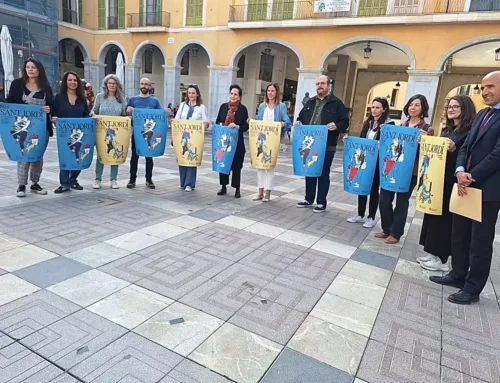The President of the Govern, Francina Armengol, and the Minister of Territorial Policy, Isabel Rodríguez, signed the agreement this Friday that will enable the transfer of coastal powers to the Autonomous Community, which will be effective as of 1 July 2023. This is the most important transfer of competencies since the arrival of the autonomous management of education and health and, after the meeting at the Consolat de Mar, Armengol explained that “today we are making a historic claim possible” and “an anomaly is resolved, which was that an island territory did not have the powers over its coastline and coast” and that, therefore, “it was a fundamental power from a political and management point of view”.
The President of the Govern recalled that “negotiations are underway with the island councils on the transfer of the rustic coastline” and that the aim is to “take advantage of these months to bring the two transfers into line” so that they can be carried out simultaneously. Armengol also celebrated the fact that this agreement comes “when we are about to celebrate 40 years of our Statute of Autonomy, and nothing culminates the self-government of these islands better than the transfer of powers”.
For his part, the Councillor for the Environment and Territory, Miquel Mir, said that the transfer of powers “will allow us to manage and decide on a strategic territorial strip of land for the present and future of the Balearic Islands, while at the same time allowing us to establish better and greater coordination between the environmental and territorial policies of the Autonomous Community”. The councillor defined these powers as strategic also in the sense that they provide tools “when it comes to fighting climate change and increasing the resilience of our coastal strip, which is fragile and vulnerable”.
Concessions, umbrellas and rights of way
Thus, from next summer onwards, the Autonomous Community will be responsible for managing, granting and monitoring authorisations for seasonal use of the public maritime-terrestrial domain, traffic easement zones (i.e. the first six metres from the seashore) or the concessions of ownership that the Coastal Law incorporates, which are required for situations such as aquaculture operations or concessions that involve private use and which must be for a period of more than four years.
In this way, the Govern will be responsible for authorisations related to sun loungers, sunshades, canteens, anchoring areas, the holding of concerts or courses in the public maritime-terrestrial domain or the installation of other removable movable property.
It will also be responsible for processing, imposing and collecting penalties for non-compliance with the right of way, authorisations to use the public maritime-terrestrial domain or non-compliance with the conditions of concessions. On the other hand, the collection of taxes and concession fees will continue to be the responsibility of the State.
The planning, drawing up of projects and the execution of works that are not of general interest will also be the responsibility of the Autonomous Community, and in those actions that are considered to be of general interest, such as beach regeneration, the Government will participate by making a proposal or presenting a report.
From a budgetary point of view, the transfer involves providing the Balearic Islands with 1,306,704.88 euros for the management of this competence. Also subrogated are 18 workers, six vehicles and the headquarters of the Coastal Demarcation, located in Palma.







Leave A Comment